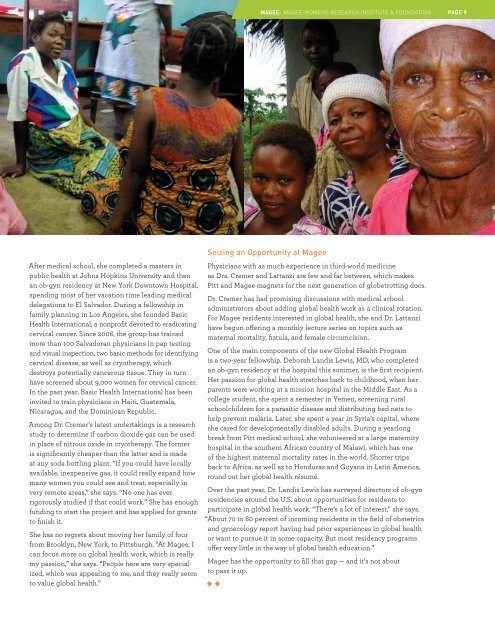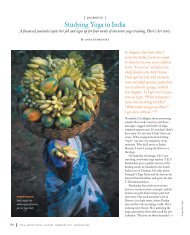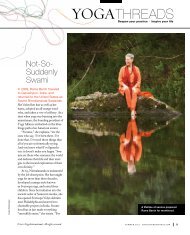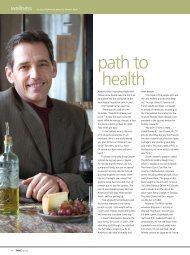A Hospital Without Borders - Anna Dubrovsky
A Hospital Without Borders - Anna Dubrovsky
A Hospital Without Borders - Anna Dubrovsky
Create successful ePaper yourself
Turn your PDF publications into a flip-book with our unique Google optimized e-Paper software.
MAGEE: MAGEE-WOMENS RESEARCH INSTITUTE & FOUNDATION PAGE 9After medical school, she completed a masters inpublic health at Johns Hopkins University and thenan ob-gyn residency at New York Downtown <strong>Hospital</strong>,spending most of her vacation time leading medicaldelegations to El Salvador. During a fellowship infamily planning in Los Angeles, she founded BasicHealth International, a nonprofit devoted to eradicatingcervical cancer. Since 2006, the group has trainedmore than 100 Salvadoran physicians in pap testingand visual inspection, two basic methods for identifyingcervical disease, as well as cryotherapy, whichdestroys potentially cancerous tissue. They in turnhave screened about 9,000 women for cervical cancer.In the past year, Basic Health International has beeninvited to train physicians in Haiti, Guatemala,Nicaragua, and the Dominican Republic.Among Dr. Cremer’s latest undertakings is a researchstudy to determine if carbon dioxide gas can be usedin place of nitrous oxide in cryotherapy. The formeris significantly cheaper than the latter and is madeat any soda bottling plant. “If you could have locallyavailable, inexpensive gas, it could really expand howmany women you could see and treat, especially invery remote areas,” she says. “No one has everrigorously studied if that could work.” She has enoughfunding to start the project and has applied for grantsto finish it.She has no regrets about moving her family of fourfrom Brooklyn, New York, to Pittsburgh. “At Magee, Ican focus more on global health work, which is reallymy passion,” she says. “People here are very specialized,which was appealing to me, and they really seemto value global health.”Seizing an Opportunity at MageePhysicians with as much experience in third-world medicineas Drs. Cremer and Lattanzi are few and far between, which makesPitt and Magee magnets for the next generation of globetrotting docs.Dr. Cremer has had promising discussions with medical schooladministrators about adding global health work as a clinical rotation.For Magee residents interested in global health, she and Dr. Lattanzihave begun offering a monthly lecture series on topics such asmaternal mortality, fistula, and female circumcision.One of the main components of the new Global Health Programis a two-year fellowship. Deborah Landis Lewis, MD, who completedan ob-gyn residency at the hospital this summer, is the first recipient.Her passion for global health stretches back to childhood, when herparents were working at a mission hospital in the Middle East. As acollege student, she spent a semester in Yemen, screening ruralschoolchildren for a parasitic disease and distributing bed nets tohelp prevent malaria. Later, she spent a year in Syria’s capital, whereshe cared for developmentally disabled adults. During a yearlongbreak from Pitt medical school, she volunteered at a large maternityhospital in the southern African country of Malawi, which has oneof the highest maternal mortality rates in the world. Shorter tripsback to Africa, as well as to Honduras and Guyana in Latin America,round out her global health résumé.Over the past year, Dr. Landis Lewis has surveyed directors of ob-gynresidencies around the U.S. about opportunities for residents toparticipate in global health work. “There’s a lot of interest,” she says.“About 70 to 80 percent of incoming residents in the field of obstetricsand gynecology report having had prior experiences in global healthor want to pursue it in some capacity. But most residency programsoffer very little in the way of global health education.”Magee has the opportunity to fill that gap — and it’s not aboutto pass it up.u u









